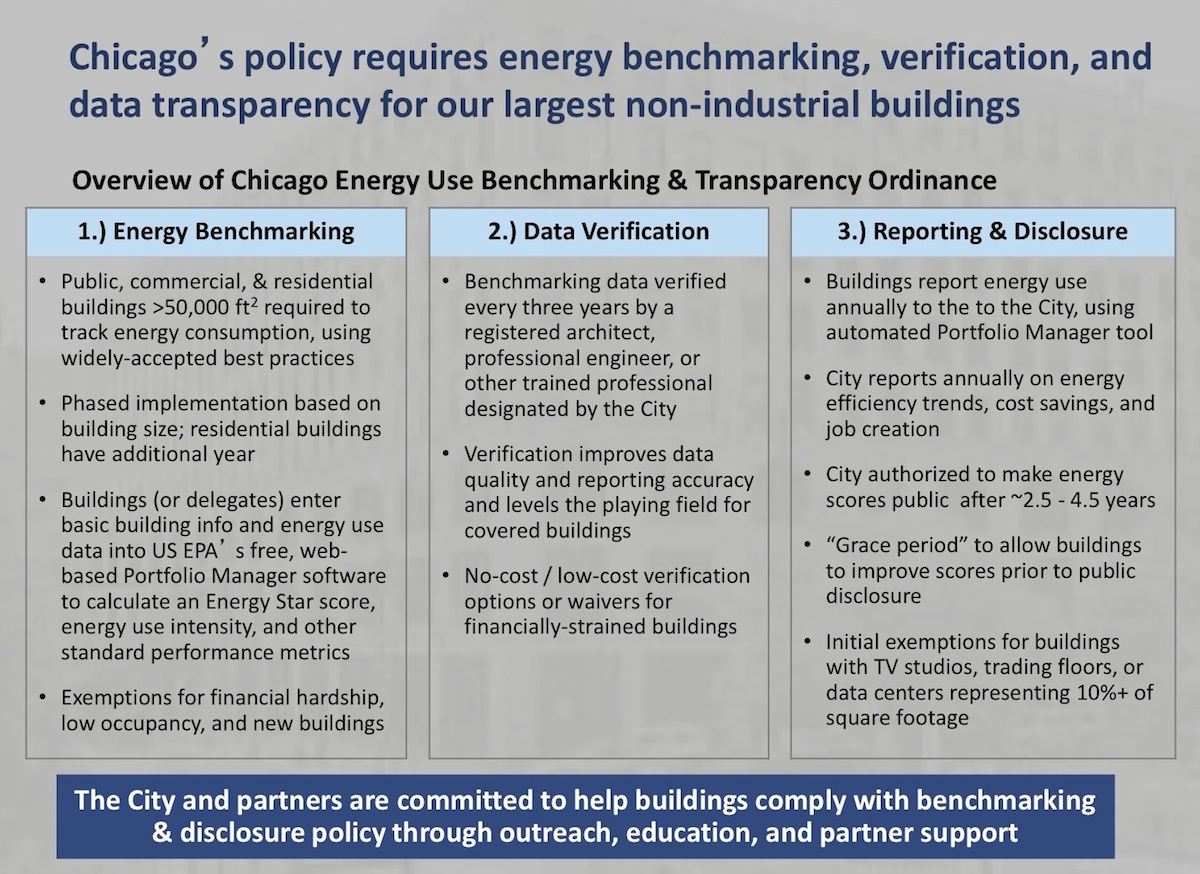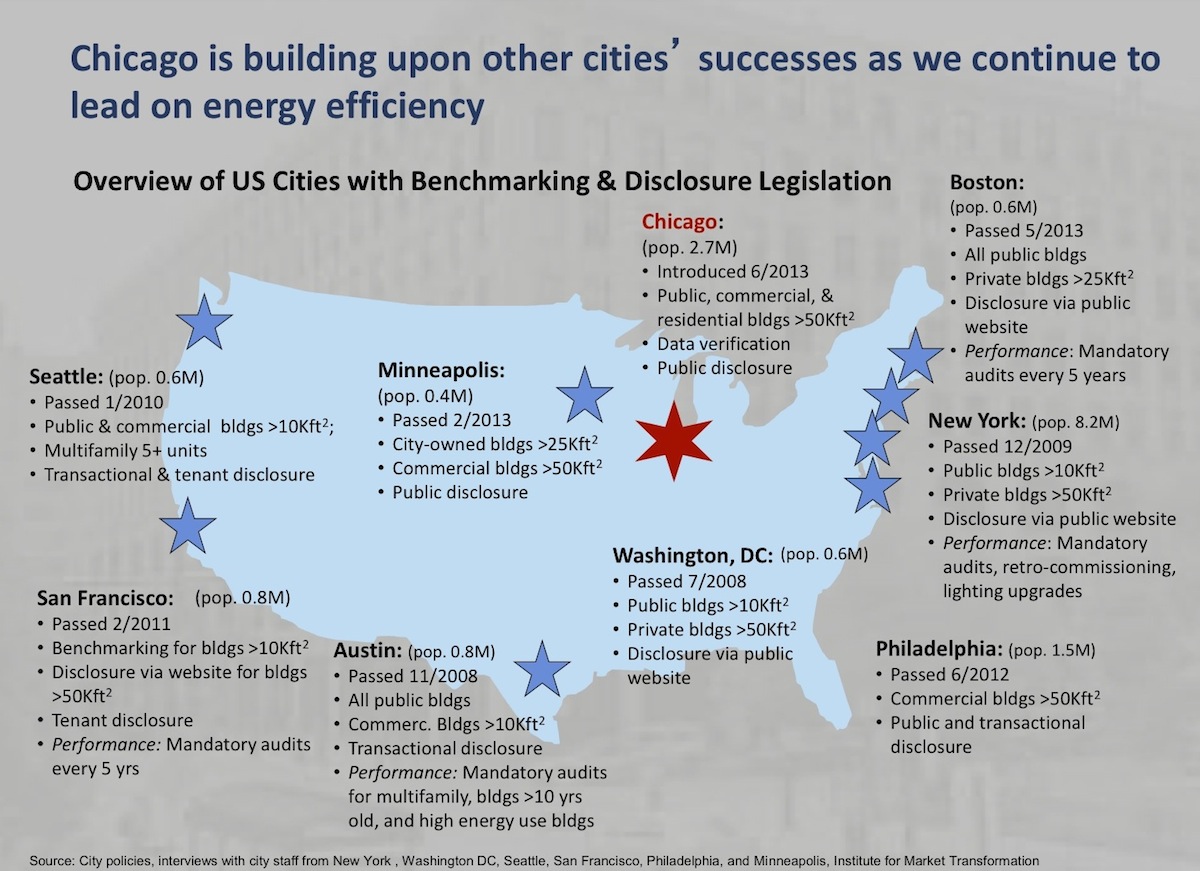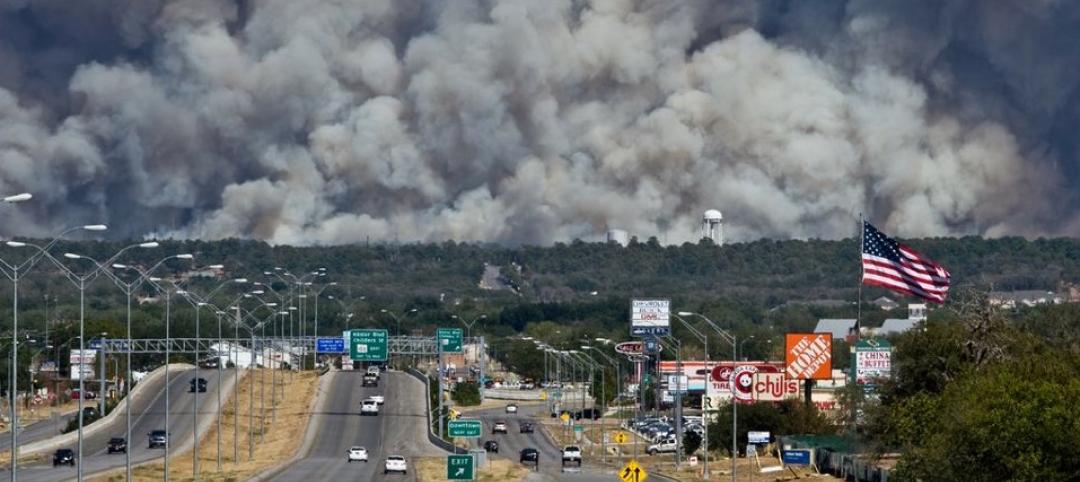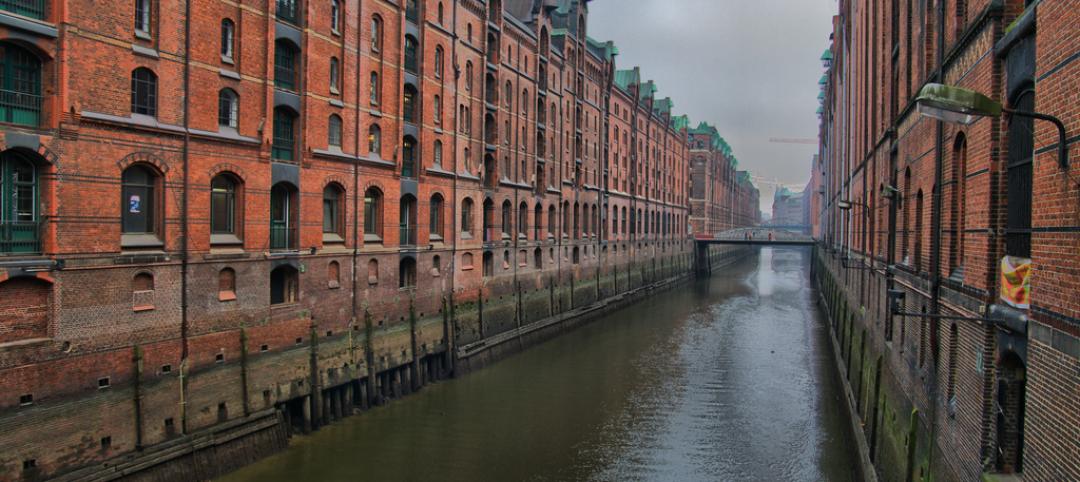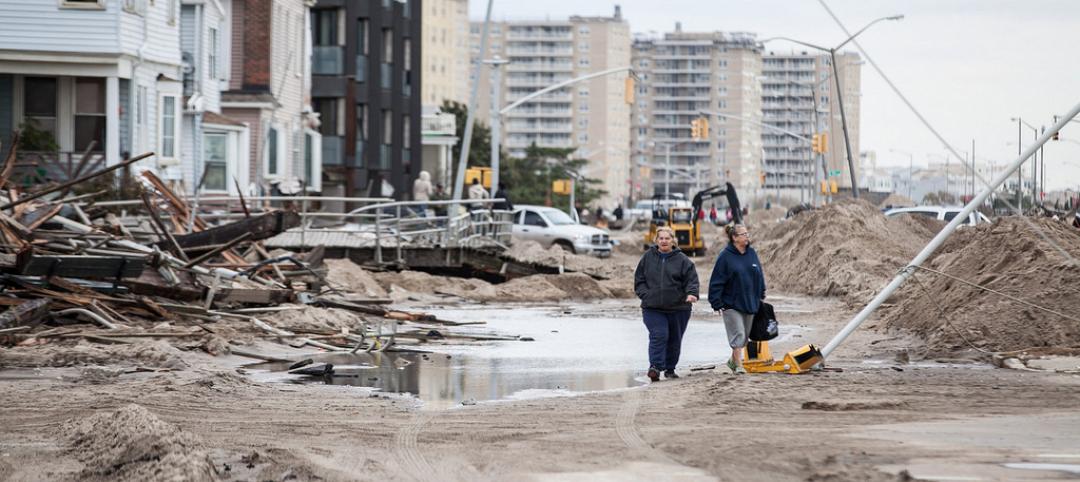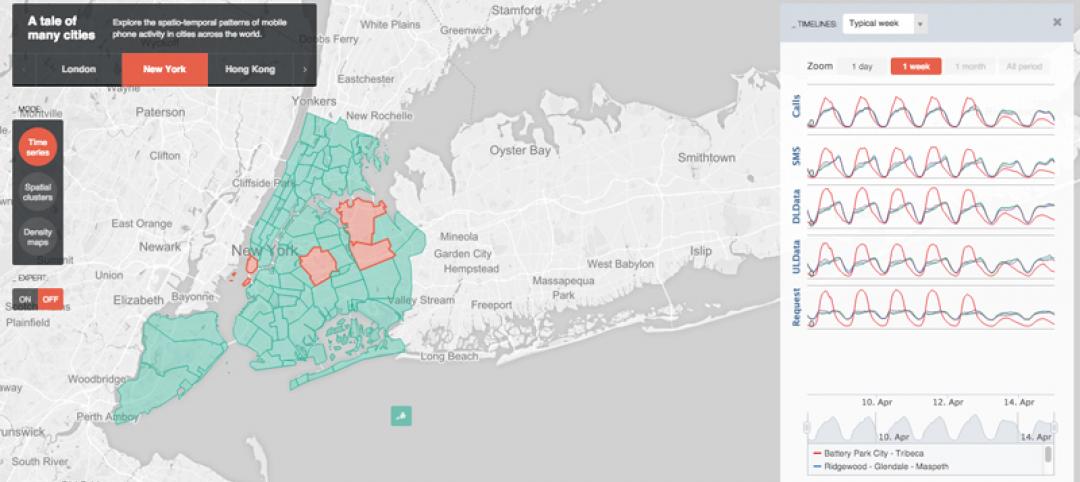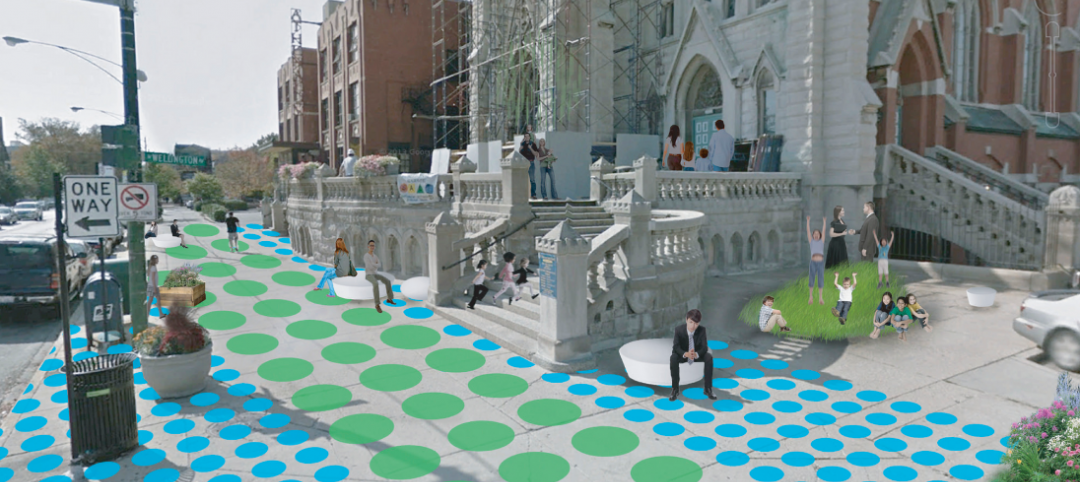The Windy City is the latest U.S. city to enact legislation that mandates building energy benchmarking and disclosure for owners of large commercial and residential buildings. The ordinance was introduced in June 2013 and passed city council vote on Wednesday.
In developing the Chicago Energy Use Benchmarking & Transparency Ordinance, city officials reached out to eight U.S. cities that have enacted similar benchmarking legislation and adopted the best elements of each program.
During a panel discussion at BD+C's BUILDINGChicago conference this week, Jamie Ponce, Chicago City Director of the C40 - Clinton Climate Initiative, outlined the elements that differentiate Chicago's benchmarking ordinance. The most unique element, said Ponce, is a rule that mandates the verification of building energy data every three years. The data must be checked and verified by a registered architect, professional engineer, or other trained professional designated by the city. Chicago will be the only city with such a mandate.
"We asked representatives from the eight other cities what they would add or do differently, and the overwhelming majority mentioned the need for data quality and accuracy," said Ponce. "They said they were getting some questionable data from building owners."
Causes range from errors in data entry to owners not fully considering all aspects of the building in calculating the energy performance. "It's helpful to have an additional data check," added Ponce. The city will offer low- and no-cost verification options for building owners who cannot afford third-party data verification services.
Here's a breakdown of Chicago's benchmarking ordinance (click image to enlarge):
Here's a comparison of the various U.S. city ordinances (click image to enlarge):
For more on Chicago's ordinance, click here.
Related Stories
Smart Buildings | Dec 1, 2015
LEED Steering Committee approves resiliency pilot credits
Three credits address planning, design, and survivability.
Smart Buildings | Nov 30, 2015
New neighborhoods in Hamburg, Germany resilient to flooding, carbon neutral
Mixed-use areas built on brownfields and derelict districts.
Smart Buildings | Nov 13, 2015
Miami Beach making plans to cope with rising sea levels, flooding
The city has turned to sea walls, raised streets, and pumping stations.
Smart Buildings | Nov 11, 2015
No eyes on the road: The impact of driverless vehicles
The idea that space can be repurposed by breaking dependence on the purchase, maintenance, and storage of a big machine is a great boon for the sustainable future of cities, writes SmithGroupJJR's David Varner.
Smart Buildings | Nov 9, 2015
White paper promotes incentives for improved disaster resilience
The white paper makes the case that the most cost-effective manner to achieve resilience is through a holistic and integrated set of public, private, and hybrid programs.
Smart Buildings | Nov 5, 2015
JLL names 10 emerging world cities
Mexico City, Shanghai, Istanbul, and seven other world-class cities have experienced rapid economic growth and real estate development.
Cultural Facilities | Oct 28, 2015
New York City’s underground 'Lowline' green space enters the testing phase
If realized, The Lowline would provide 1.5 acres of green space for the Lower East Side of Manhattan.
Seismic Design | Oct 22, 2015
Taipei 101 tower named 'world's toughest' building by Popular Mechanics
Popular Mechanics named the 10 structures that best withstand floods, winds, storms, and earthquakes.
BIM and Information Technology | Oct 19, 2015
New web tool from MIT organizes human movement in interactive graphs
Users can explore the mobile phone activities in London, New York, Los Angeles, and Hong Kong.
Smart Buildings | Oct 8, 2015
Brookings announces the Bass Initiative on Innovation and Placemaking
The think tank's goal is to stress public spaces, urban economies, and inclusive growth in city building.


